- +501 674-9503
+501 676-9503 - [email protected]
- Near the International Airport
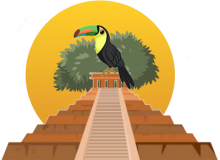
Nelson Maya Adventures
Alluring Mayan Site Tours and Outstanding Transfers Service for the Insightful Traveler.

Nelson Maya Adventures
Alluring Mayan Site Tours and Outstanding Transfers Service for the Insightful Traveler.
We arrange all your transportation for a smooth trip, allowing you to experience the best cave tubing adventure with our travel agents and tour operators!

Altun Ha was a wealthy Maya trading hub from 250-900 AD, where rulers controlled the movement of goods like jade, obsidian, and exotic feathers. The site’s most famous discovery is the Jade Head of Kinich Ahau, representing the Sun God. This treasure, weighing almost 10 pounds, is the largest carved jade artifact in the Maya world! Fun fact: The temple pyramid from Altun Ha is featured on Belize’s national currency!
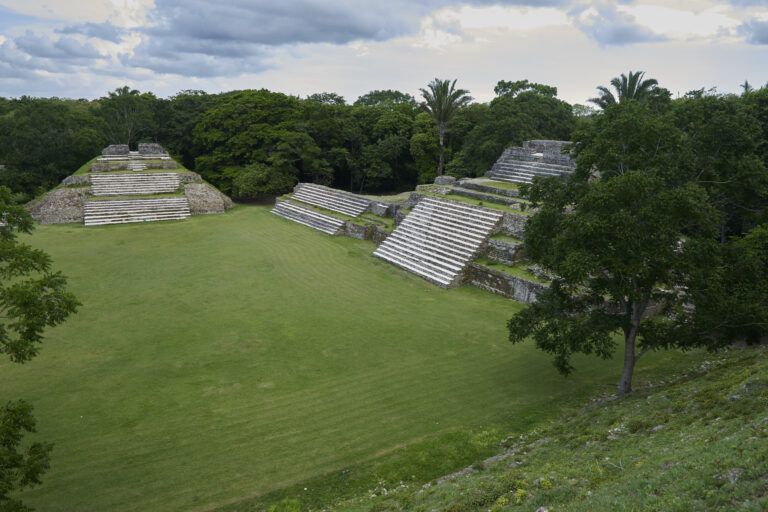
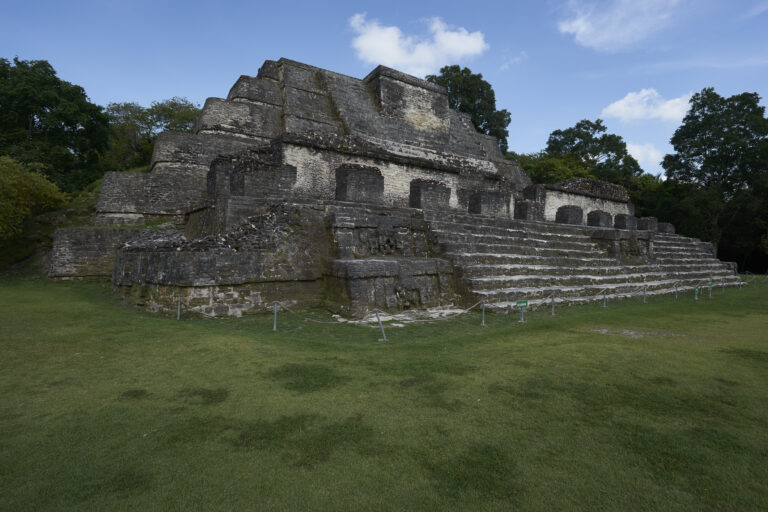
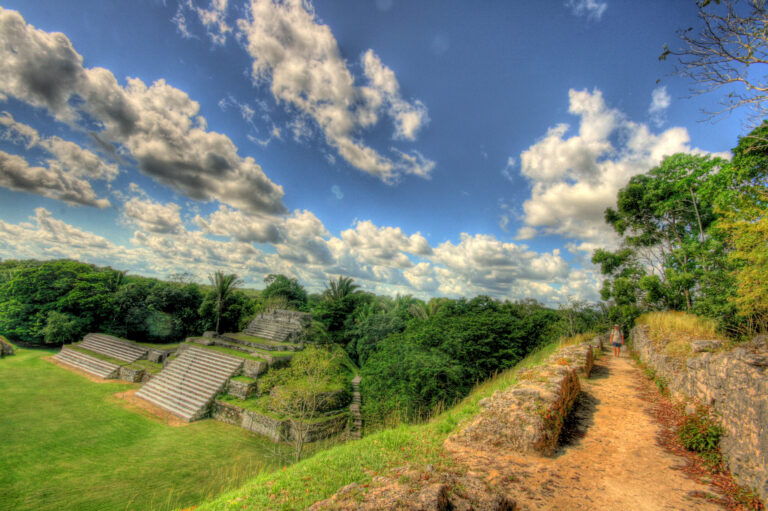
Xunantunich (pronounced “Shoo-nan-too-nich”) means “Stone Woman”, named after a legend of a ghostly woman seen wandering the ruins. It was a powerful Maya city during the Late Classic Period (600-900 AD), strategically built near the Mopan River. The site’s highlight is El Castillo, standing at 130 feet, making it one of the tallest Maya structures in Belize. The temple’s friezes depict Maya deities and cosmic events, reflecting the deep spiritual and astronomical knowledge of the ancient Maya.
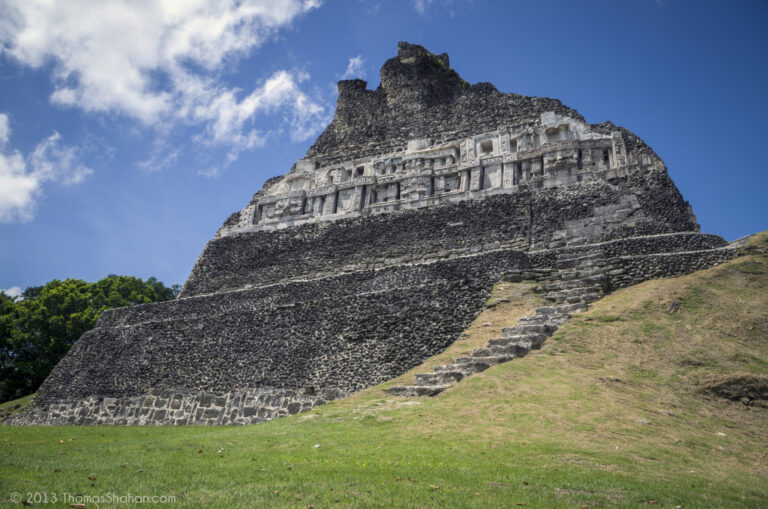
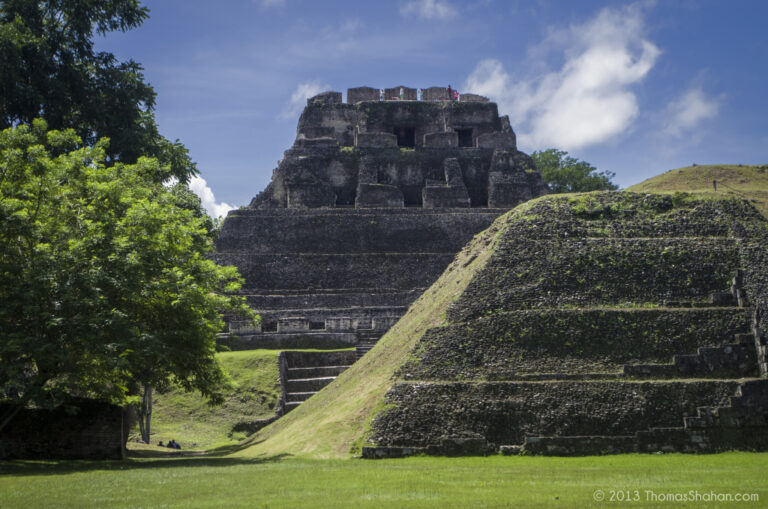
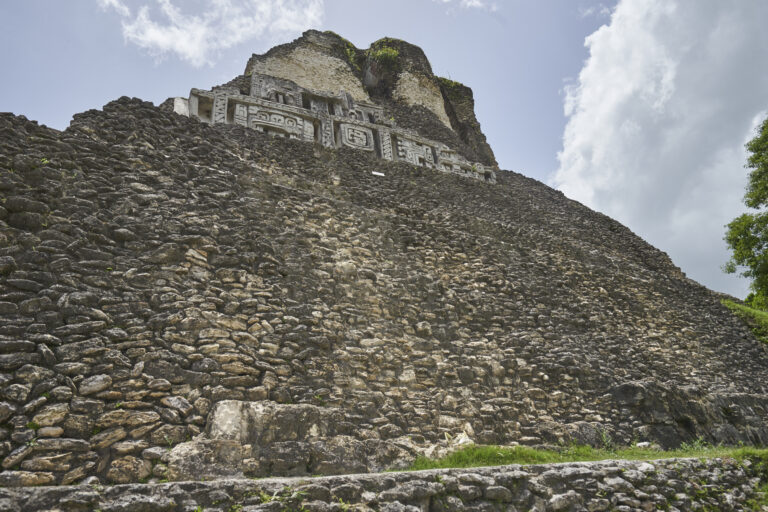
Lamanai, meaning “Submerged Crocodile”, was one of the longest-occupied Maya cities, lasting over 3,000 years. Unlike many other Maya cities, Lamanai remained inhabited even during Spanish rule, with colonial churches built alongside ancient temples. Hidden deep in the jungle and accessible only by boat, it offers an immersive experience with stunning wildlife. The High Temple, Mask Temple, and Jaguar Temple are its main structures, with large stone masks carved into the pyramids.
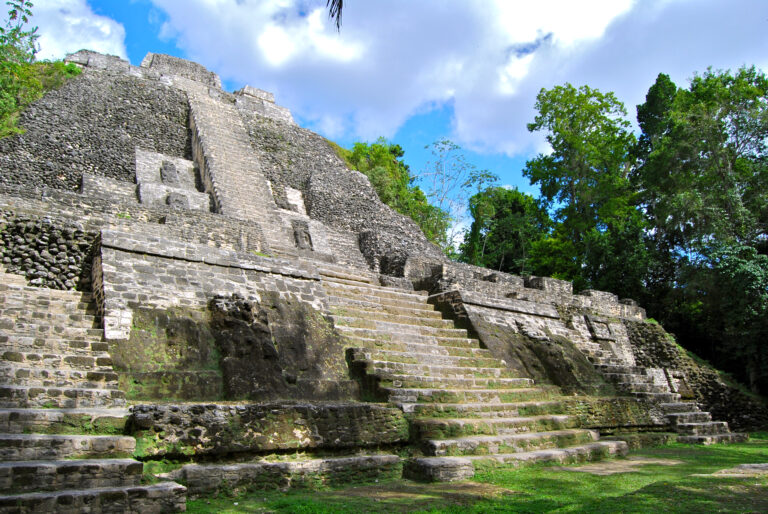
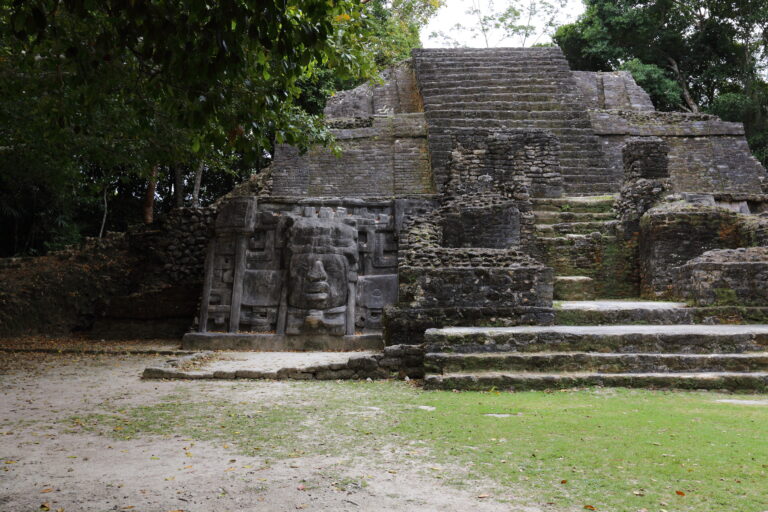
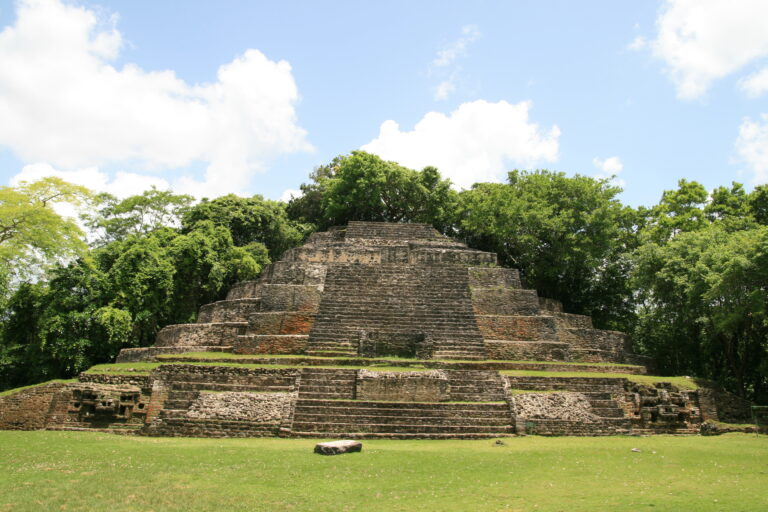
Cahal Pech, One of the oldest Maya sites in Belize, dating back to 1200 BC, Cahal Pech was an elite residential and ceremonial center. Unlike the larger city-states, this site served as a royal palace with interconnected courtyards, temples, and tombs. The name “Cahal Pech” means “Place of Ticks”, a reference to the area’s past as farmland before excavation. Its compact layout and narrow passageways offer a unique glimpse into Maya daily life.
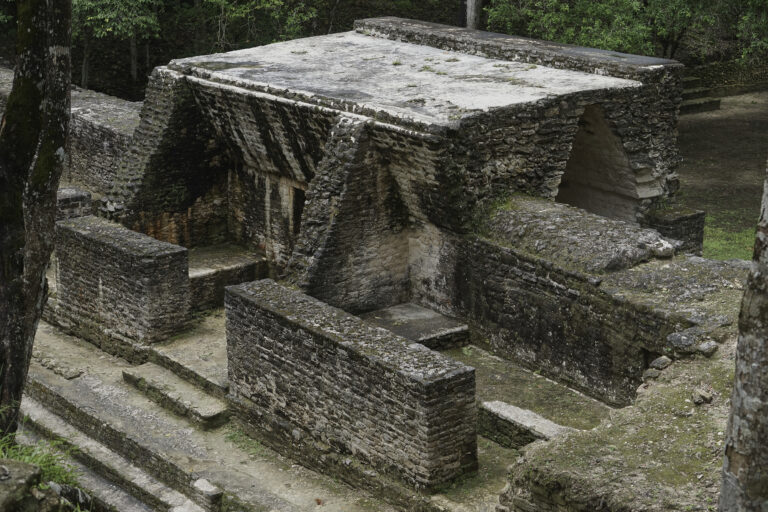
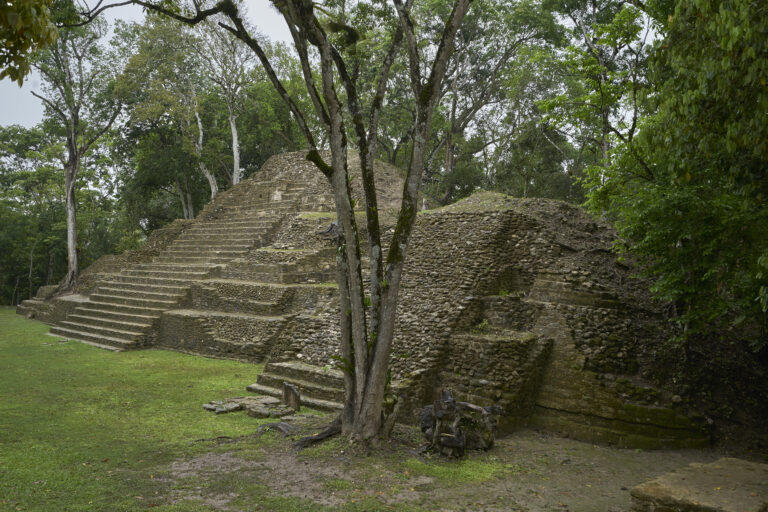
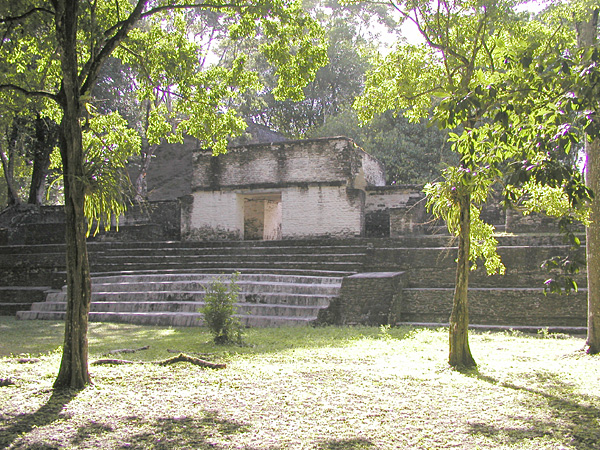
Caracol was the largest and most powerful Maya city in Belize, covering over 200 square kilometers and home to an estimated 150,000 people at its peak in 650 AD. It famously defeated the mighty city of Tikal (Guatemala) in a major war. Its tallest pyramid, Caana (“Sky Palace”), stands at 143 feet, making it the highest man-made structure in Belize even today. The site features extensive hieroglyphic inscriptions, detailing royal conquests and ceremonies.
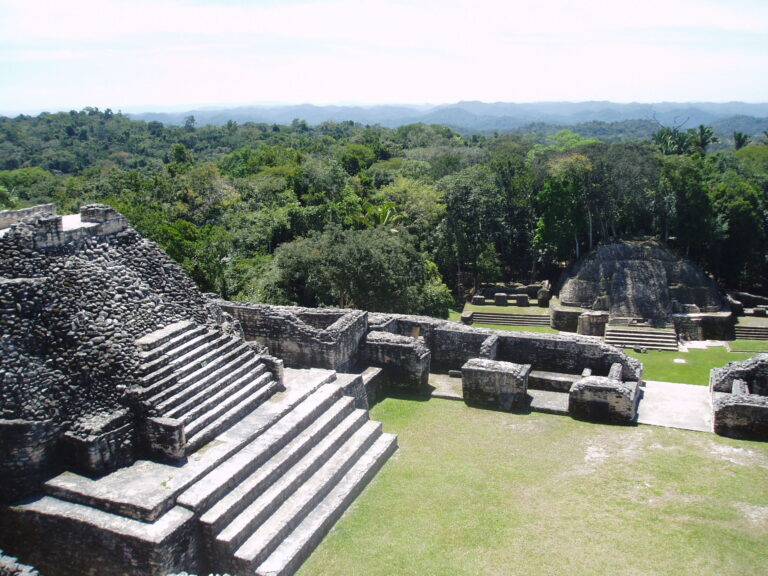
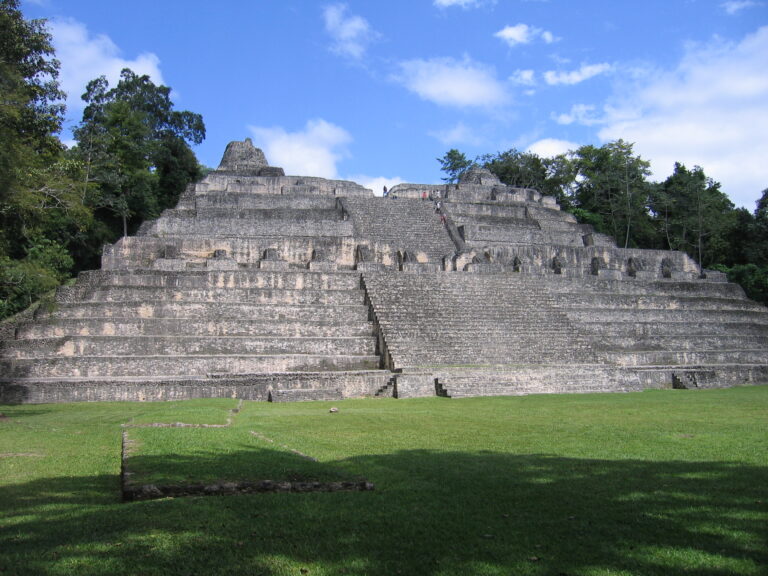
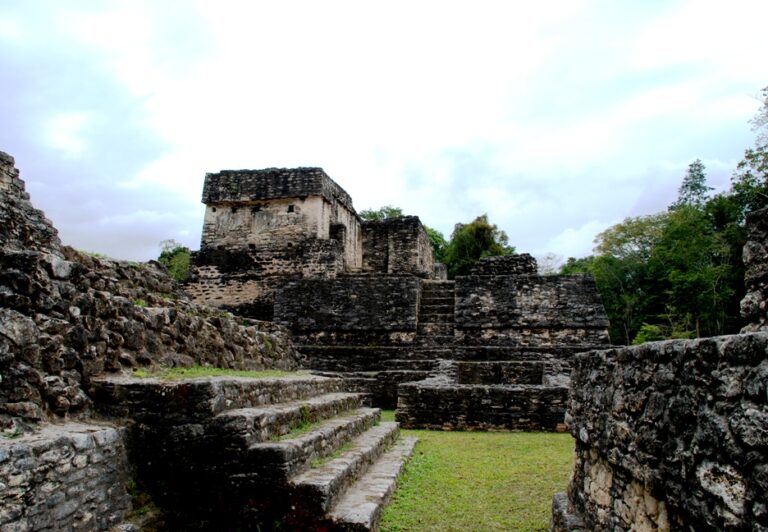
Cerros, located on the Caribbean coast, was a thriving port city and trading hub around 400 BC – 100 AD. It’s unique for its waterfront location and its large temple masks carved into the pyramids. Cerros is one of the few sites where you can see the blending of Maya maritime trade, astronomy, and religious ceremonies. Today, it offers a peaceful, off-the-beaten-path experience with breathtaking views of Corozal Bay.
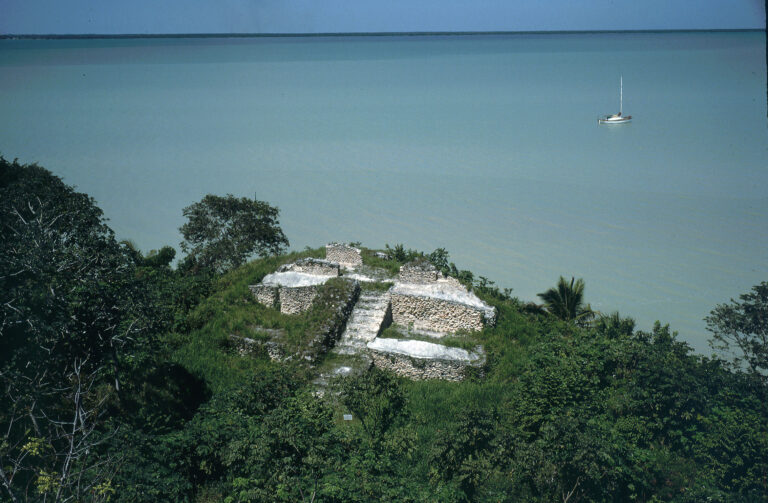
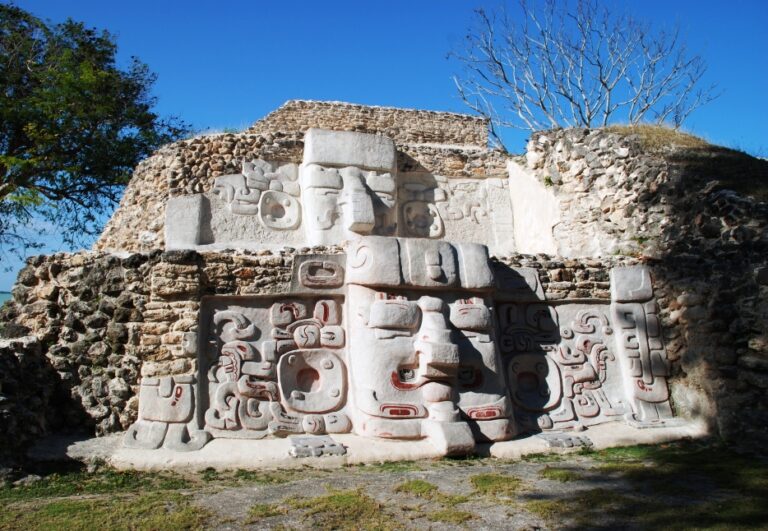
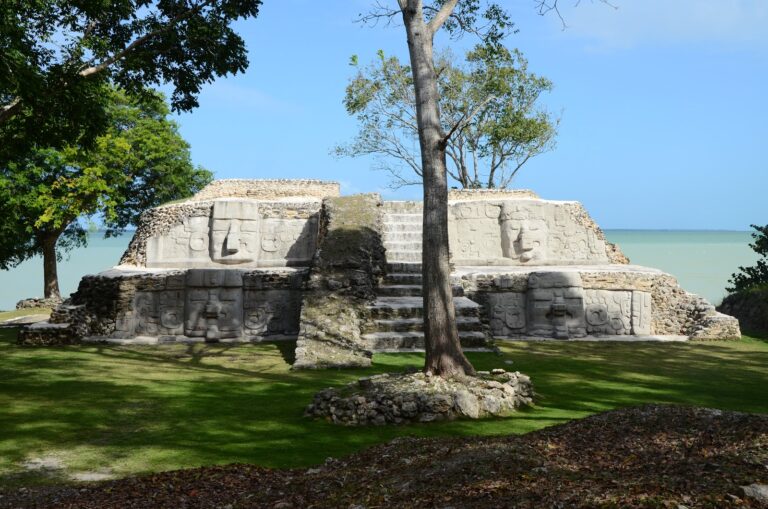
El Pilar, meaning “The Pillar”, is one of the largest Maya sites in Belize, but much of it remains unexcavated, allowing visitors to experience a “living” Maya city still covered by jungle. It was a major political and trade center, with plazas, temples, and residential areas that connected Belize and Guatemala. The site offers a unique blend of archaeology and eco-tourism, showcasing how the ancient Maya coexisted with nature.
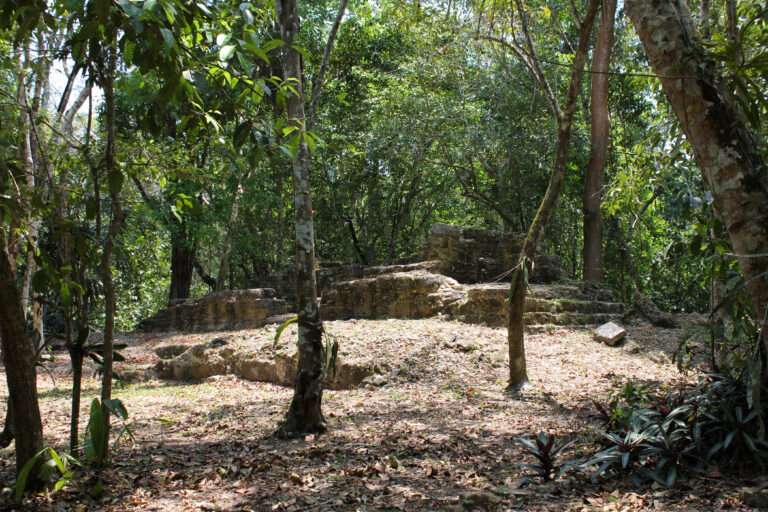
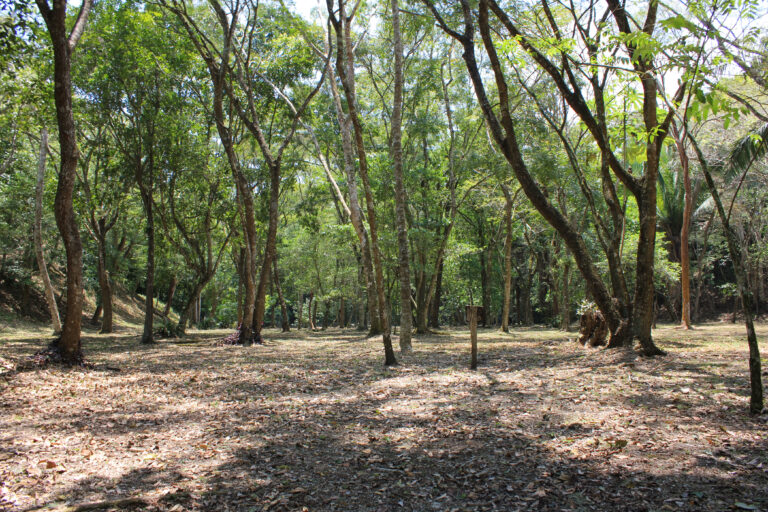
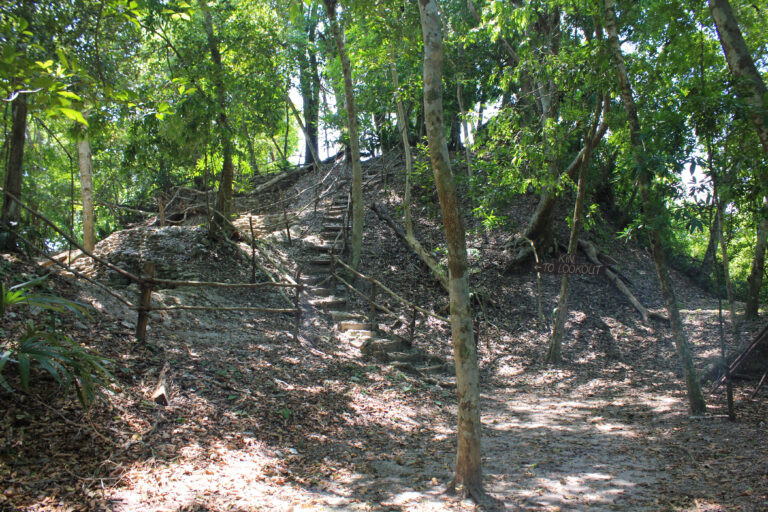
Lubaantun, meaning “Place of Fallen Stones”, is unique because it was built entirely without mortar, with precisely cut stones stacked together. It flourished during the Late Classic Period (700-900 AD) and is famous for the controversial discovery of the Crystal Skull in 1924, which some believe has mystical powers. The site’s rounded temples and small ball courts suggest it was a ritual and ceremonial hub, possibly used for spiritual gatherings.
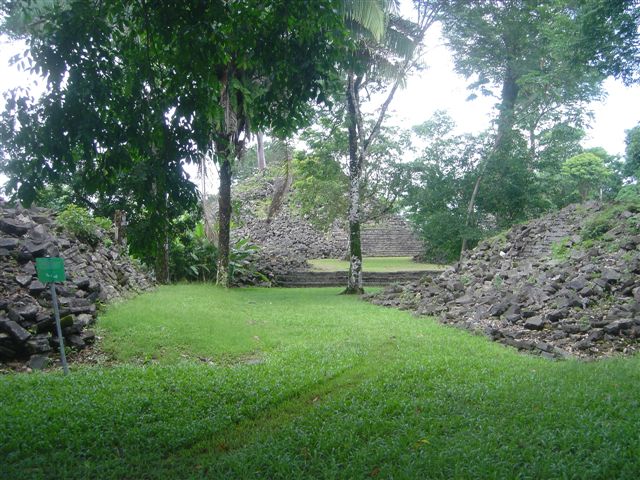
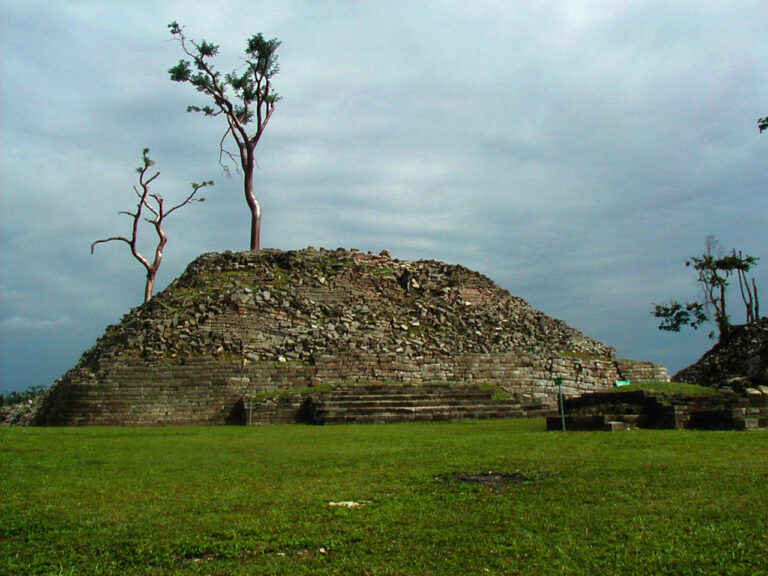
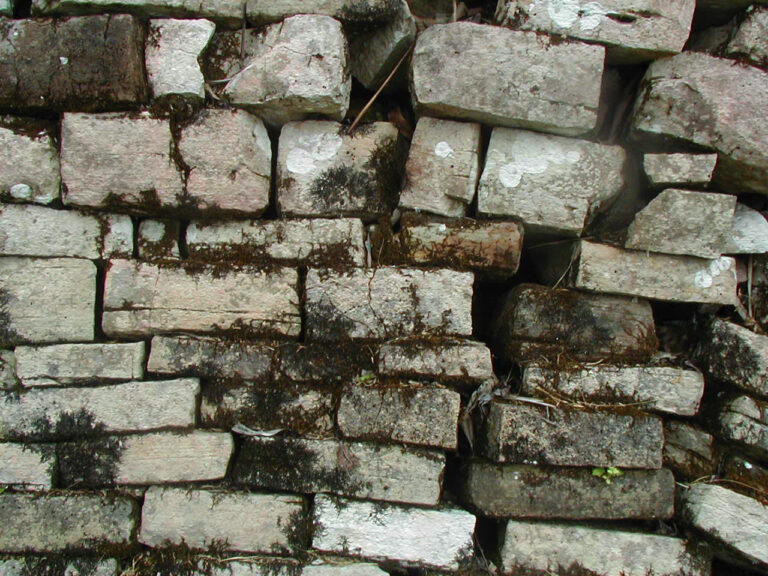
Nim Li Punit, meaning “Big Hat” in the local Kekchi Maya language, gets its name from a large stone carving depicting a ruler wearing an enormous headdress. This site is famous for its stelae (carved stone monuments), which are some of the tallest in the Maya world. Located in southern Belize, Nim Li Punit was a key ceremonial center, likely used for royal rituals, astronomy, and political gatherings.
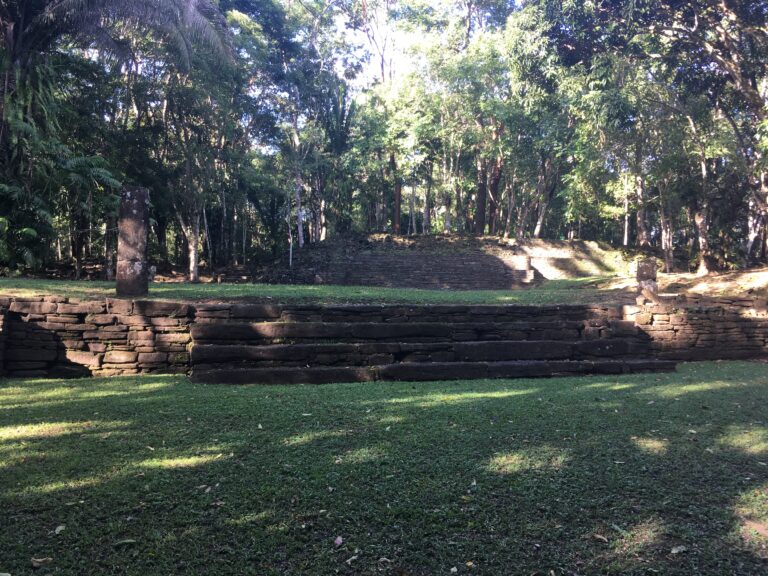
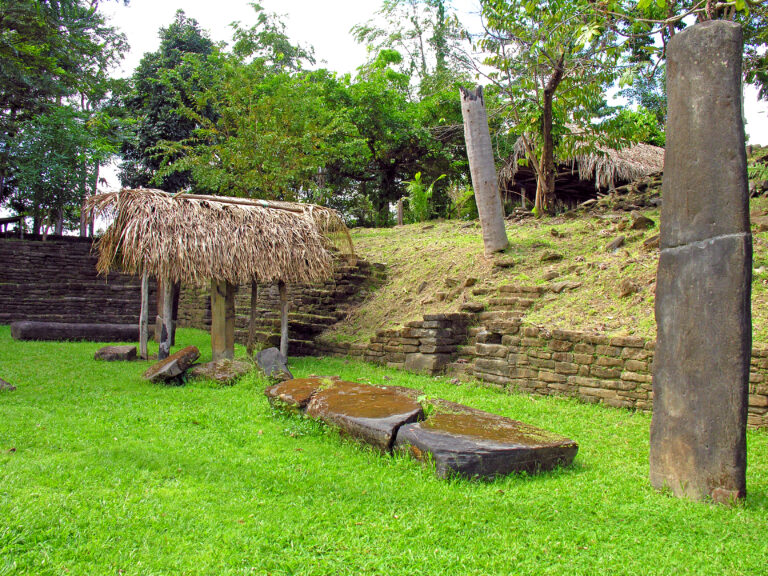
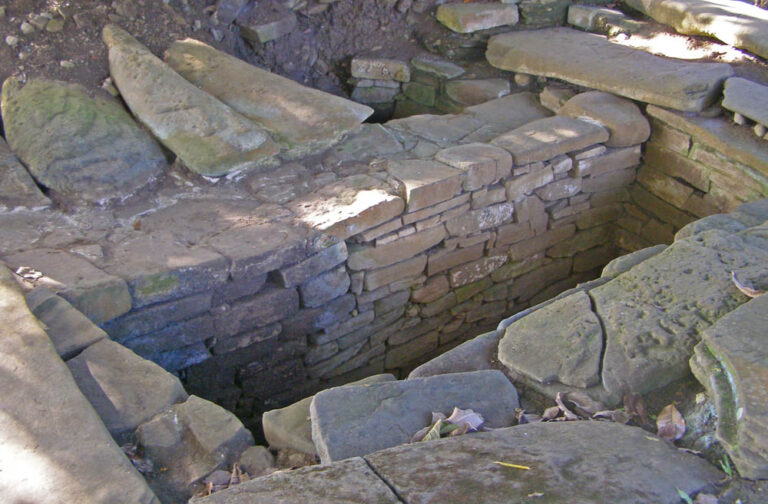
Santa Rita was an important coastal trading city, once part of the larger Chetumal Kingdom. It played a major role in Maya-Spanish interactions, and its descendants became the Mestizo people of Belize. Santa Rita is believed to be the place where the first recorded Maya-Christian marriage took place, uniting a Spanish conquistador and a local Maya noblewoman. This blend of cultures shaped modern-day Belizean identity.
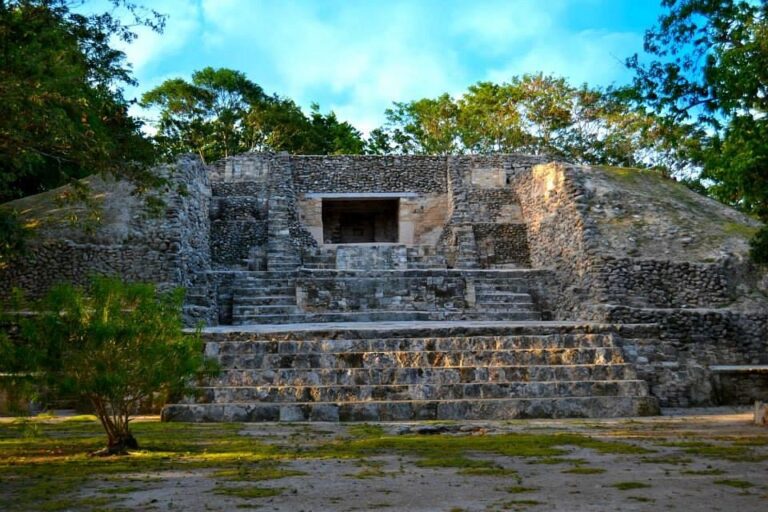
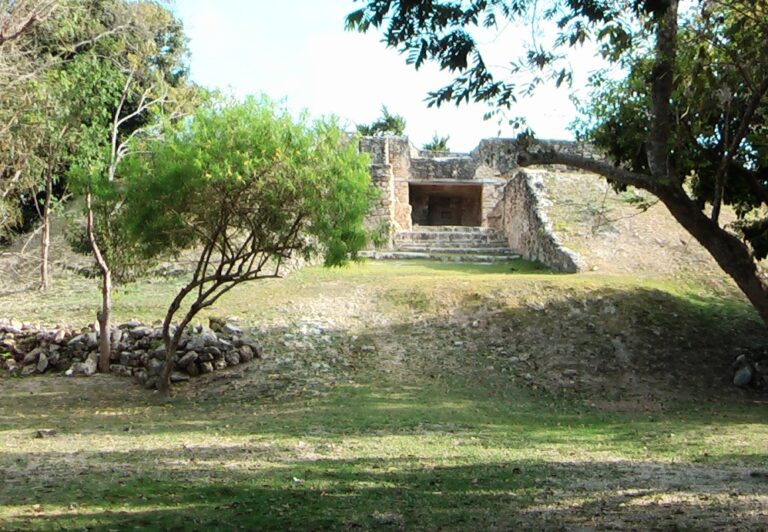
Tikal was a dominant city-state in the Maya world, known for its towering temples, intricate stelae, and advanced astronomy. As a political and cultural hub, it shaped Maya civilization through alliances and rivalries with cities like Calakmul and Caracol. Tikal’s grandeur remains a symbol of the Maya’s ingenuity and resilience, echoing through the jungle to this day.
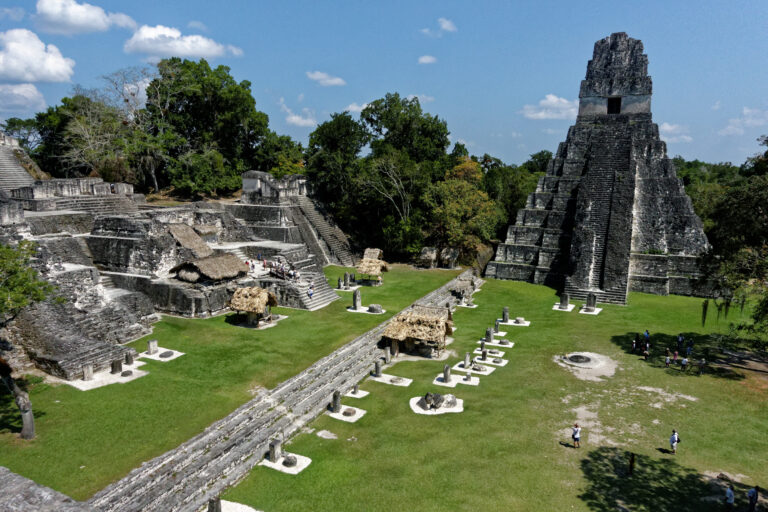
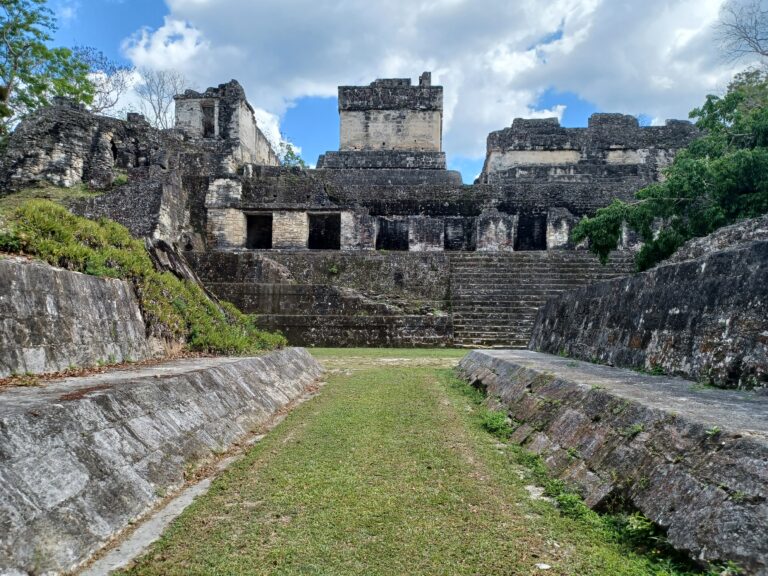
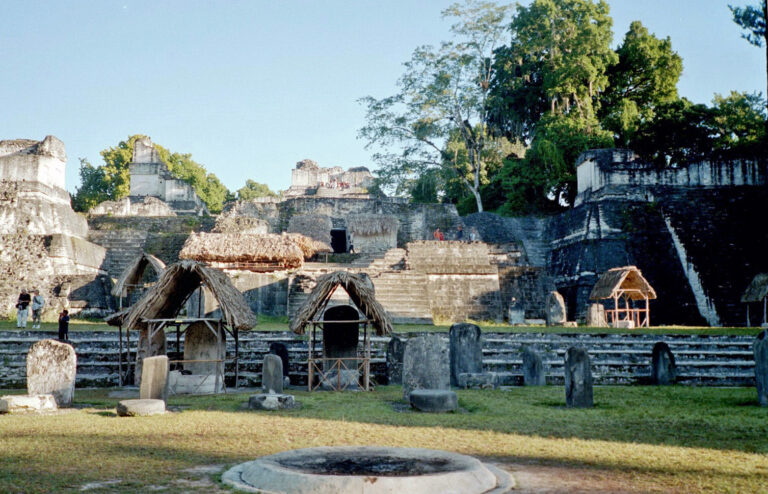
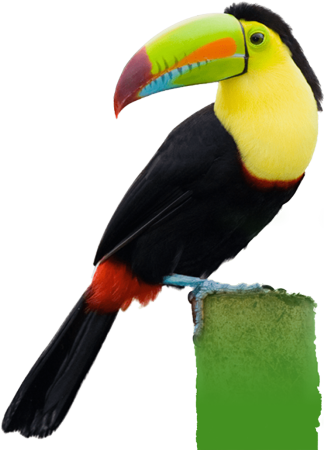
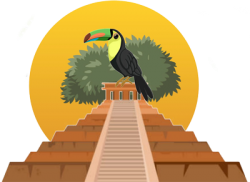
© 2024 Nelson Maya Adventures -::- Cancellation Policy – Map of Belize – Photos
Nelson Maya Adventures is open with Enhanced Safety Protocols Learn More
Fill out the form below, and we’ll get back to you shortly!